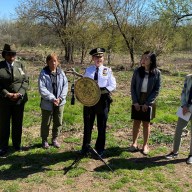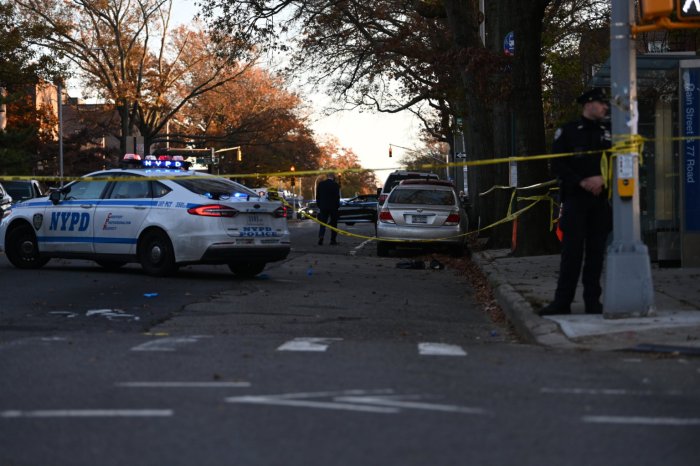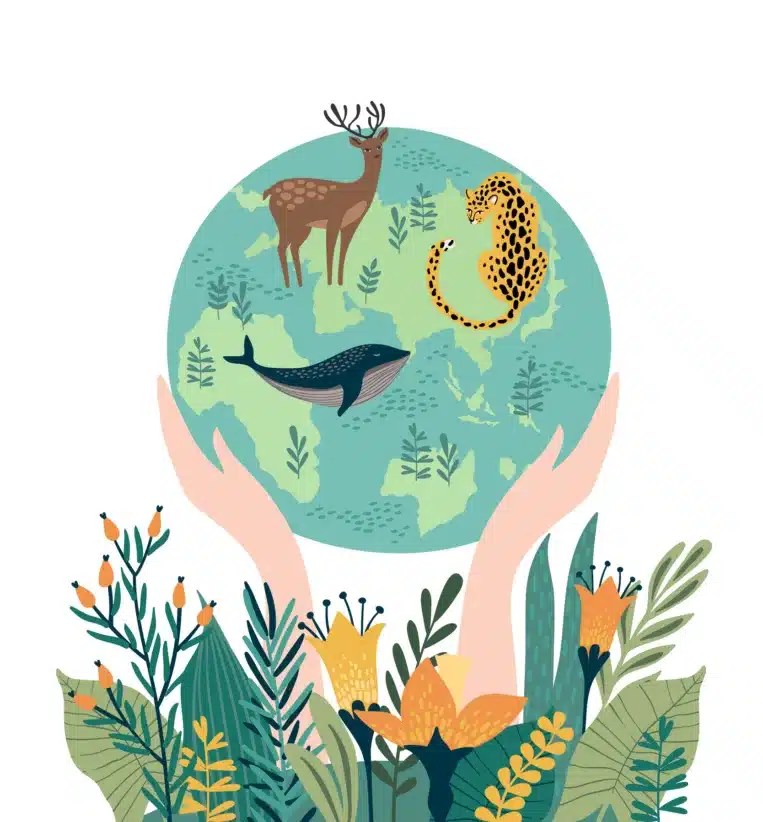By Tom Momberg
The Kupferberg Holocaust Resource Center and Archives helped to commemorate the 100-year anniversary of the Armenian Genocide last week with a special event to educate students and the general public about survivor testimony and on how to interpret the prejudice and racism that caused the genocide in a 21st century context.
Queensborough Community College allocated extra security resources for the speaking engagement, as even 100 years later, some Turks refuse to recognize that the then-Ottoman government had systematically exterminated about 1 million Armenians.
The speakers, Honore Gatera, director of the Kigali Genocide Memorial of the Aegis Trust and a survivor of the Rwandan Genocide, as well as Molly Sullivan, director and curator of the Near East Relief Historical Society, gave some background about why remembering historical genocides and encouraging survivors to speak is so important.
Gatera said that despite the hardship interviewing survivors of genocide might cause, their perspective is important for their own culture and as a way for people all over the world to reflect on and understand the consequences of those historical events.
“As we stand here 100 years after, we are reminded of atrocities that were committed by other human beings. Watching testimonies gives me a sense of what we are doing today, because if we didn’t have these tapes in another 100 years, those who committed genocide would have a way to deny that it ever happened,” Gatera said.
Over 100 members of the public, QCC academic literacy students and Holocaust survivors gathered at KHRCA, 222-05 56th Ave., to recognize and develop some sensitivity around the topic, just five days before thousands gathered in Times Square for an unprecedented rally to mark the centennial of Armenian Genocide.
Both as an affiliate of QCC and as a center set up to educate the public on the Holocaust, the KHRCA saw the opportunity to host a panel and curate a display about a historical event forgotten by so much of the Western world a century later.
“Our students come from all over the world,” said QCC President Diane Call. “They have experienced perhaps some isolation, perhaps some violence and they bring to us an incredible perspective, which reminds us we can never forget.”
The Armenian Genocide, which took place during and after World War I, was twofold: The Ottoman Empire forced into labor and massacred hundreds of thousands of able-bodied men, and later forced a death march of Armenian populations into the Syrian Desert.
Sullivan, whose organization was built around the Near East Foundation that was established in the U.S. to provide refugees with help in direct response to the Armenian Genocide, said she is now working to preserve that history digitally.
By collecting testimony from survivors, and researching and archiving raw materials, Sullivan said the public can not only remember the horrible things some people can do to their own human race, but also to remember the good it brings out in others.
“More than 1,000 people volunteered to work with Near East Relief to provide humanitarian relief in the wake of the Armenian Genocide,” she said. “We wanted to be able to honor each and every one of those people to highlight the fact that every person can do something.”
A few local elected officials such as Councilman Paul Vallone (D-Bayside), whose wife is Armenian, and Assemblyman David Weprin (D-Fresh Meadows), also spoke at the event, giving some insight to why remembering genocide is so important locally.
“Queens being probably the most diverse county in the world… Any time there is a violent hate crime against one group or one individual, it is important to unite as a borough against discrimination of any kind,” Weprin said.
Reach reporter Tom Momberg by e-mail at tmomb





























